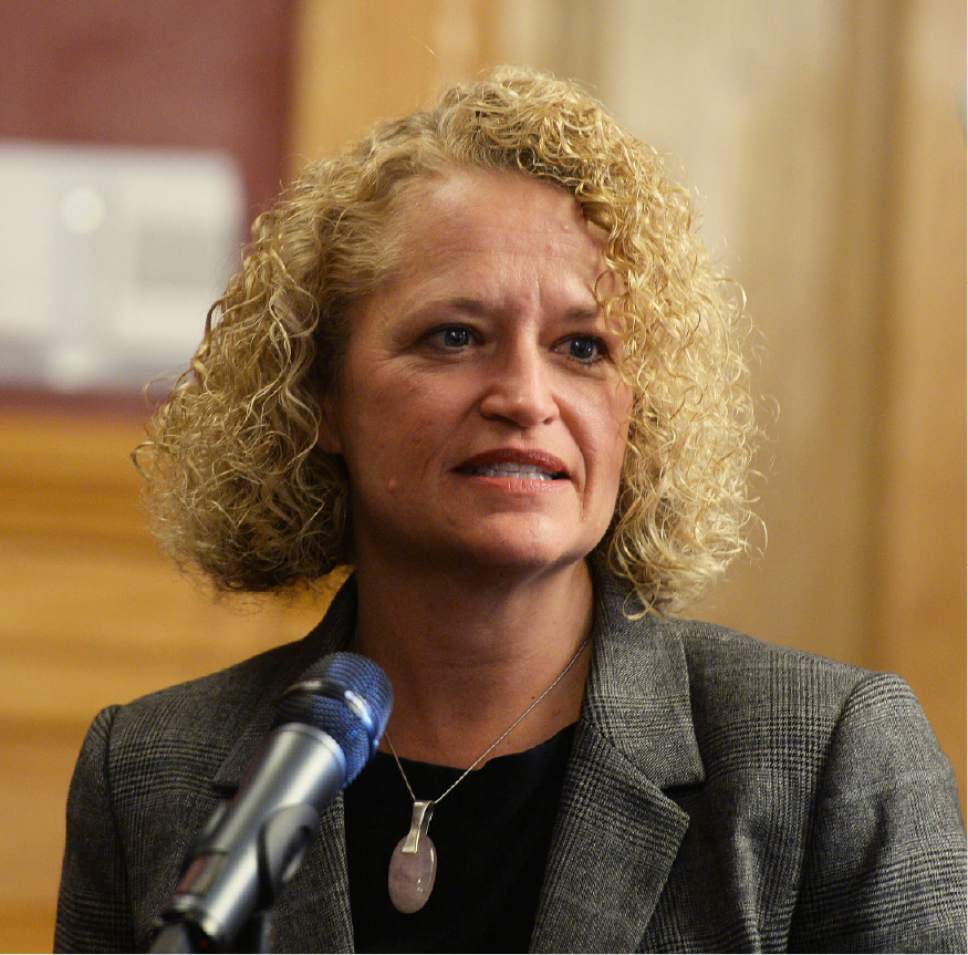This is an archived article that was published on sltrib.com in 2016, and information in the article may be outdated. It is provided only for personal research purposes and may not be reprinted.
An impact-fee moratorium on new construction in Salt Lake City will expire Nov. 1, but the City Council has yet to receive a new fee proposal from Mayor Jackie Biskupski.
"We have no clue," council Chairman James Rogers said Wednesday. "We've asked and they say something is coming — but nothing so far."
The mayor's office said the yearlong process has been thorough and will result in "a very strong" proposal. Spokesman Matthew Rojas said Wednesday afternoon that the mayor would submit her plan Friday.
The council is scheduled to meet Oct. 18. But it seems unlikely the proposal — if it were to come Friday — could be discussed before the council's last meeting of the month — Oct. 25.
Even if the council adopted a new ordinance by Nov. 1, it would require 90 days to take effect.
"It's not going to happen [by Nov.1]." Rogers said. "It's a frustration. It's a frustration for developers and it's a frustration for the community."
Rogers said any proposal from Biskupski most likely will leave a lot for council members to evaluate. They will need time to dig through the plan and determine how best to apply fees.
If the moratorium lapses, the old fees likely would return — something the development community does not want to see. It could be extended, meaning the city would continue to lose funding designed to maintain quality of life amid growth.
The moratorium was proposed by former Mayor Ralph Becker. His administration asked the council to impose it so the city could devise more efficient mechanisms for spending impact fees.
Then-candidate Biskupski campaigned on re-evaluating impact fees in the face of criticism from residents, small-business owners and developers who griped that the city's impact fees were onerous.
A draft study from Lewis, Young, Robertson and Burningham Inc., commissioned by the city, was completed in July. It suggested impact fees could jump by as much as 62 percent on new single-family homes to $5,598 per house. Fees on new apartments would rise a more modest 5 percent, to $3,456 per dwelling. The council saw a draft study in September.
The mayor's proposal, however, could have any number of modifications.
Rojas said the administration got feedback from developers and residents and made other suggestions to the consultant. A new draft was submitted to the mayor and council last month.
Impact fees go toward maintaining fire, police, streets and parks.
The study forecasts that Utah's capital (population 193,000) will add up to 28,208 residents during the next 10 years. That is based on the construction of 545 single-family houses and 7,064 apartments. It also projects growth in commercial construction will continue through 2025.
— Tribune reporter Tony Semerad contributed to this story.



